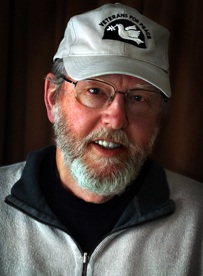It is in this powerful, politically conservative, anti-crime climate that Supreme Court Justice McCaffery and others have begun to talk a reform game, using a politic focus on veterans to get in the door. McCaffery and Dugan do not, of course, put their emphasis on the reform aspects of "jail diversion" programs like Veterans Court; they stick with empowering a perpetrators veteran identity and playing up the patriotic "band of brothers" theme. Viewed from the angle of overdue reform, however, it's like they're attacking prison reform by using the gung-ho, macho language of soldiers and veterans as a strategic beachhead.
Dugan is well aware of the politics involved in efforts like Veterans Courts. When he introduced Justice McCaffery at the 82nd Airborne Association dinner [2], Dugan referred to the state supreme court justice as "flying top cover for me." In turn, McCaffery likes to stress [3] that his efforts are about "not leaving any of our soldiers behind."
These judges are doing courageous and innovative work to institutionalize creative, socially productive alternatives to sending so many citizens to jail. Jail as a solution to problems has led the US to become the most incarceration-obsessed nation in the world. The fact is, in our current depressed economy, we can no longer afford to incarcerate so many people. Like wars, locking up our citizens is busting the bank. Of note, the US Supreme Court [4] just ordered California to release 30,000 inmates over the next two years due to overcrowding that amounted to unconstitutionally cruel and unusual punishment.
Besides Philadelphia, Pittsburgh and Scranton, Veterans Courts are now operating in some 60 areas across the nation. They're popping up like mushrooms. Dugan has referred to the movement as an "epidemic." Many states like Massachusetts are now in the discussion stage. In Philadelphia, the jail diversion philosophy has also spawned a Drug Court and a Prostitute Court. Right now, the city's veterans court only handles misdemeanor cases; but Dugan says the plan is to include felonies in the future.
How Veterans Court Works
The basis for Veterans Court is actually quite simple. Instead of a retributive instrument of justice, the court is seen as a restorative instrument of justice, a sort of broker of solutions for human problems. As Dugan told me, for a judge to send a drug user to a VA rehab program rather than to jail made sense. "Aren't I doing more for our society by doing that?" he asked. But, then, he was quick to add, referring to defendants in court before him: "My philosophy is, if the crime fits it, you need to go to jail." Much of Dugan's week is, of course, sitting as a regular municipal court judge.
While McCaffery and Dugan like to stress the "hidden wound" of PTSD and clearly have great respect for combat veterans, Dugan said, "We take any and all veterans in our court. The word "veteran' to this court means you had the uniform on."
In the court on Fridays, besides the public defender and district attorney, there are two staff members who work with the Veterans Administration and a constellation of agencies and providers for counseling, housing aid and a host of other services. Veteran "mentors" are trained and made available by the court to help a veteran keep appointments and for any other needs he or she might have. A representative from the city's Veterans Multi-Service Educational Center is always on hand. Veterans like Jim McPhail from Healing Ajax, a private, non-profit, apolitical counseling entity are present in the court to assess the needs of veterans.
Next Page 1 | 2 | 3 | 4 | 5 | 6
(Note: You can view every article as one long page if you sign up as an Advocate Member, or higher).




